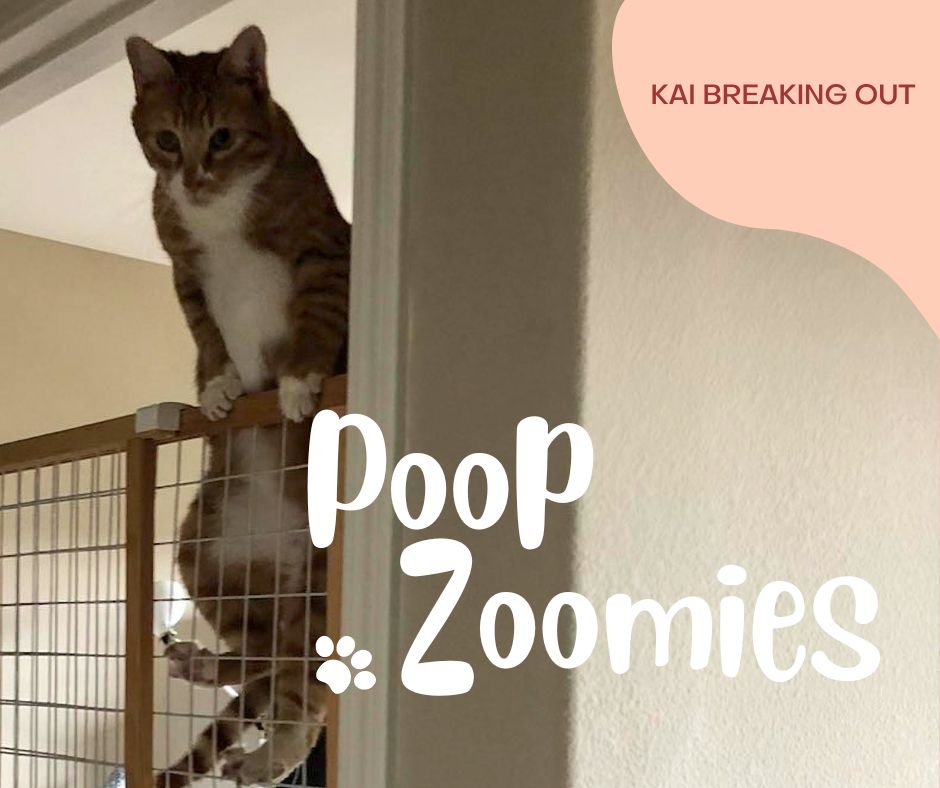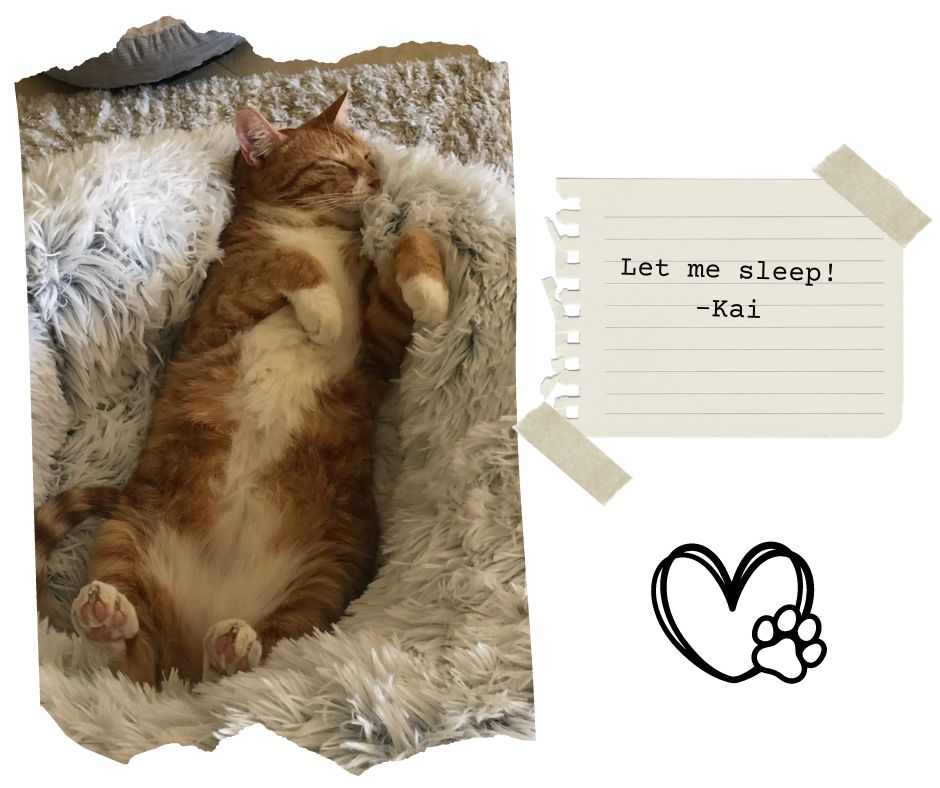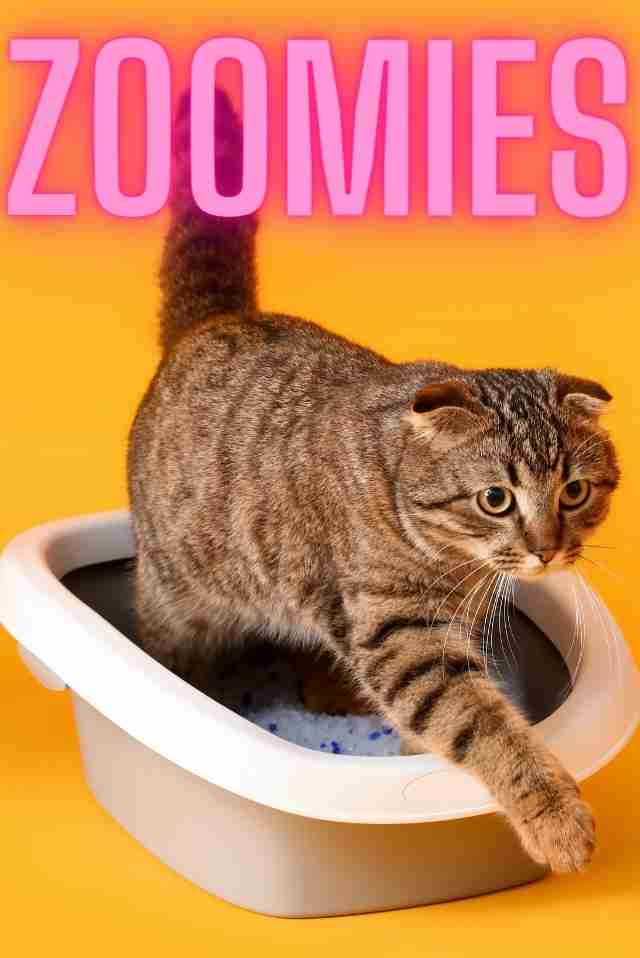Why Do Cats Get the Zoomies After They Use the Litterbox?
If you share your home with a cat, you've probably witnessed this peculiar behavior: your feline friend does their business in the litter box, then suddenly tears through the house like their tail is on fire. Meet Kai, my orange tabby, who perfected this post-bathroom sprint into an Olympic-level performance.
But what causes this bizarre burst of energy? Let's dive into the science and theories behind one of the most entertaining (and sometimes messy) cat behaviors.
What Are Poop Zoomies? The Official Definition
According to behavioral researchers, poop zoomies are defined as:
"The behavior observed in animals, particularly pets, where they exhibit bursts of excessive energy and run around, often in circles, with heightened excitement immediately after defecating."
If you've ever witnessed your cat racing through the house like they're being chased by an invisible force right after using the litter box, you've seen this phenomenon firsthand. You're definitely not alone, as this behavior is incredibly common among cats!

The Mystery: Why Does This Happen?
The truth is, the actual cause remains unknown. However, veterinarians and animal behaviorists have developed several compelling theories to explain this quirky feline behavior:
1. Medical Reasons
Before we explore behavioral explanations, it's important to consider potential medical causes. Discomfort or illness could trigger unusual post-elimination behavior.
When to be concerned:
- Behavioral changes accompanying the zoomies
- Vocalizations or signs of distress
- Changes in litter box habits
- Any unusual symptoms
The American Association of Feline Practitioners recommends consulting your veterinarian if you notice any concerning changes in your cat's bathroom routine or behavior.
Important safety note: If you ever see anything protruding from your cat's body, DO NOT attempt to remove it yourself. This could cause serious internal damage. Contact your veterinarian immediately.
2. Relief and Comfort
Just like humans might feel lighter and more energetic after using the bathroom, cats may experience a similar sense of relief after elimination.
Think about it: successful elimination means:
- Physical relief from fullness or discomfort
- Lightness in the body
- General feeling of wellbeing
This feeling of comfort and relief can trigger playful, energetic responses as they feel physically unburdened. It's a celebration of feeling good!
3. Vagus Nerve Stimulation
This is one of the more scientific explanations. The vagus nerve runs through the digestive system, and defecation can stimulate this important nerve.
Vagus nerve stimulation can cause:
- Sudden bursts of energy or excitement
- Feelings of euphoria or relief
- Changes in heart rate and mood
This neurological trigger could explain the immediate and intense nature of post-bathroom zoomies. Rather than being just a behavioral quirk, this could actually be a genuine neurological response in your cat's body!
If you're interested in learning more about the vagus nerve and its effects, there's fascinating research available on this mechanism. (We encourage you to explore this on your own for a deeper dive!)
4. Marking Territory
Cats are intensely territorial creatures, and the rapid movement after using the litter box could be an instinctive behavior to help spread their scent.
Here's the theory:
- Cats have scent glands in their paws
- Running around after elimination distributes their scent
- This establishes and reinforces territorial claims
- It's a way of saying "This is MY house!"
The post-litter box sprint might be your cat's way of making sure their presence is known throughout their domain.
5. Survival Instinct
This theory takes us back to your cat's wild ancestors. In the wild, cats are both predators and prey, creating a unique set of survival challenges.
The wild cat's dilemma:
- Waste products carry strong scents
- These scents can attract larger predators
- Vulnerable moments (like elimination) are dangerous
- Quick escape is essential for survival
Their ancestors had to quickly distance themselves from their waste to avoid attracting dangerous predators. This inherited instinct to flee from their elimination site may still be hardwired into your domestic cat's DNA.
Even though your indoor cat faces no threat from predators, millions of years of evolution don't disappear just because we brought them inside and gave them a comfy bed!

Practical Management Strategies
While poop zoomies are generally harmless (and often hilarious), here are some tips for managing this energetic behavior:
1. Errant Poop Patrol
After the zoomies commence, do a quick inspection:
- Check the litter box and surrounding area
- Look for any accidents along the zoom route
- Sometimes in their excitement, things get...displaced
- Clean up promptly to maintain hygiene
2. Litter Mat Lifesaver
Invest in quality litter mats:
- Place them around the litter box to catch litter dust
- Catch residual particles before they spread through your home
- Easy to clean and maintain
- Reduces tracking throughout your house
This simple addition can save you significant cleanup time!
3. Energy Expenditure Essentials
Provide appropriate outlets for these sudden bursts of energy:
Climbing structures:
- Cat trees near the litter box area
- Wall-mounted shelves for vertical territory
- Gives cats a safe destination for their zoom
Cat wheels:
- Like hamster wheels, but cat-sized
- Provides a dedicated space for running
- Helps channel natural energy-burning behaviors
- Can reduce destructive zooming
Interactive toys:
- Available for post-zoom play
- Redirect energy into appropriate play
- Strengthen your bond through play sessions
When to Consult Your Veterinarian
While poop zoomies are generally normal behavior, certain signs warrant professional attention:
Red Flags
- Behavioral changes: Zoomies accompanied by distress or unusual behavior
- Vocalizations: Crying, yowling, or sounds of discomfort
- Litter box avoidance: Refusing to use the litter box or going outside it
- Physical symptoms: Blood in stool, straining, or visible discomfort
- Sudden onset: If your cat never did this before and suddenly starts
- Protruding objects: NEVER attempt removal yourself; seek immediate vet care instead
Regular Monitoring
Keep track of:
- Frequency and intensity of zoomies
- Any patterns or triggers
- Overall health and behavior changes
- Litter box habits and stool appearance
Your observations can provide valuable information to your veterinarian if concerns arise.
The Bottom Line: Embrace the Quirk!
Poop zoomies are a normal, if mysterious and sometimes messy, part of cat ownership. The behavior likely stems from a combination of factors:
- Relief and physical comfort
- Neurological stimulation (vagus nerve)
- Territorial instincts
- Survival programming from wild ancestors
- (And possibly pure feline weirdness!)
For most cats, this energetic display is nothing to worry about. It's actually quite entertaining once you understand what's happening and take precautions to manage the aftermath.
Kai's Zoomie Chronicles
My orange tabby Kai has turned post-poop sprints into performance art. His route is predictable: litter box → down the hallway → across the living room → up the cat tree → dramatic pose. Every. Single. Time.
Is it necessary? Probably not. Is it hilarious? Absolutely. Do I love him anyway? Without question.
Related Cat Health Topics
If your cat shows digestive discomfort that might affect bathroom behavior, check out our guide on the best cat food for sensitive stomachs. Understanding your cat's diet is crucial, so be sure to learn how to read cat food labels like a pro.
For cats showing signs of itching or discomfort, explore whether they might have food allergy symptoms that need addressing.
Conclusion
The next time your cat rockets out of the litter box like they've just completed a mission-critical task, you'll know it's likely a combination of relief, instinct, and possibly nerve stimulation, all wrapped up in typical feline mysteriousness.
Embrace the quirks of your feline friend and enjoy the entertainment. After all, it's just another reminder of why cats are such fascinating, endearing, and utterly unpredictable companions!
And remember: if you're ever concerned about your cat's behavior or health, don't hesitate to consult with your veterinarian. They can help distinguish between normal cat shenanigans and signs that something might need attention.
Now if you'll excuse me, I hear the sound of paws thundering down my hallway. Again.
